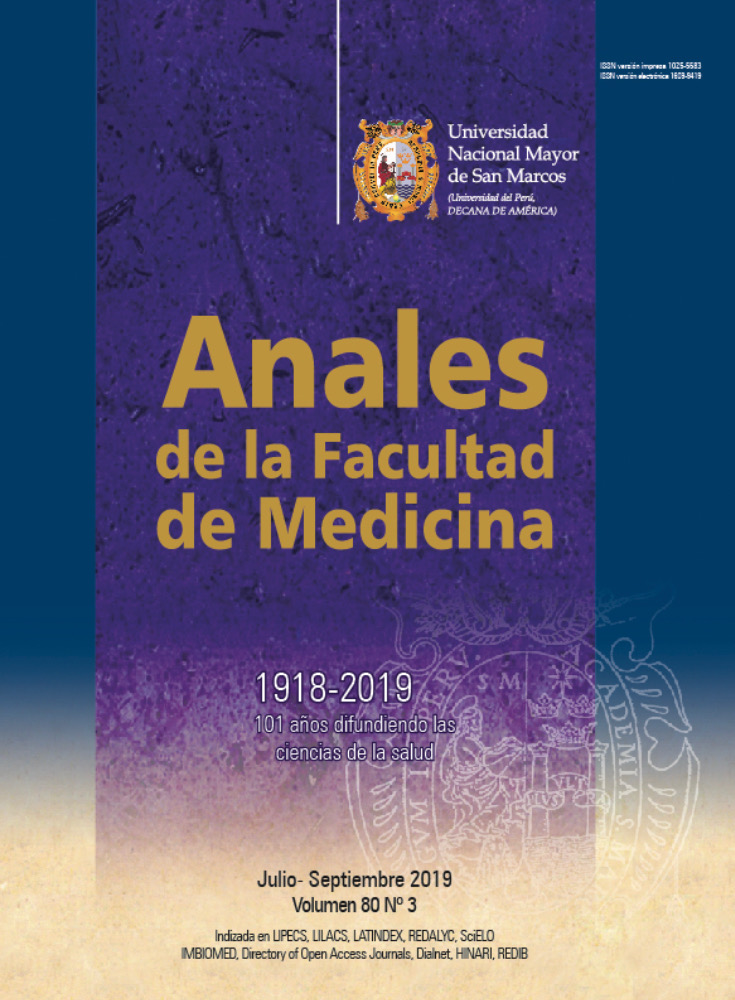Strategies to promote health literacy from primary care: a perspective that considers the realities of low and middle-income countries
DOI:
https://doi.org/10.15381/anales.803.16864Keywords:
Health literacy, primary health care, self care, empowerment for healthAbstract
Health literacy is associated with better health outcomes. Primary care professionals generally provide most of the care to patients and are also often the first point of contact for patients within a health system. This article discusses four strategies to promote health literacy in the primary care setting: 1) Improve the clinician’s communication skills, 2) Use e-Health tools, 3) Promote patient self-care, and 4) Develop support systems and care environments. These strategies are discussed in the context of the realities of low and middle income countries, as in the case of Peru.
Downloads
Published
Issue
Section
License
Copyright (c) 2019 Anales de la Facultad de Medicina

This work is licensed under a Creative Commons Attribution-NonCommercial-ShareAlike 4.0 International License.
Those authors who have publications with this magazine accept the following terms:
- Authors will retain their copyrights and guarantee the journal the right of first publication of their work, which will be simultaneously subject to Creative Commons Attribution License that allows third parties to share the work as long as its author and its first publication this magazine are indicated.
- Authors may adopt other non-exclusive licensing agreements for the distribution of the version of the published work (eg, deposit it in an institutional electronic file or publish it in a monographic volume) provided that the initial publication in this magazine is indicated.
- Authors are allowed and recommended to disseminate their work over the Internet (eg: in institutional telematic archives or on their website) before and during the submission process, which It can produce interesting exchanges and increase quotes from the published work. (See El efecto del acceso abierto ).



